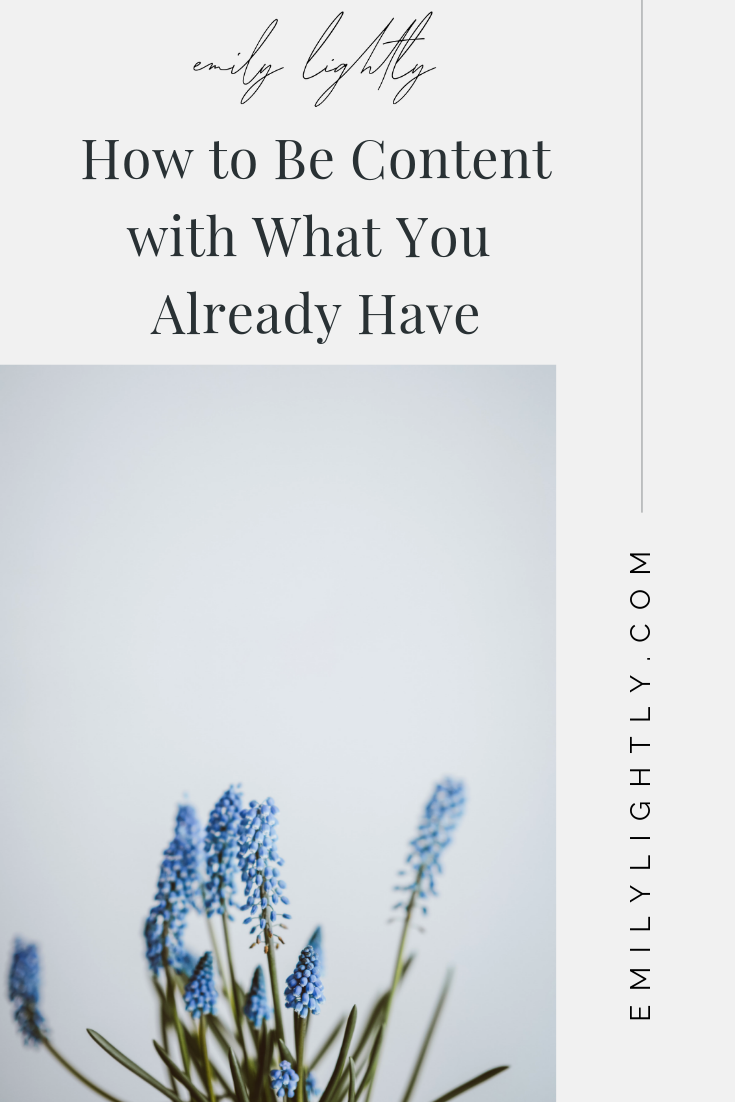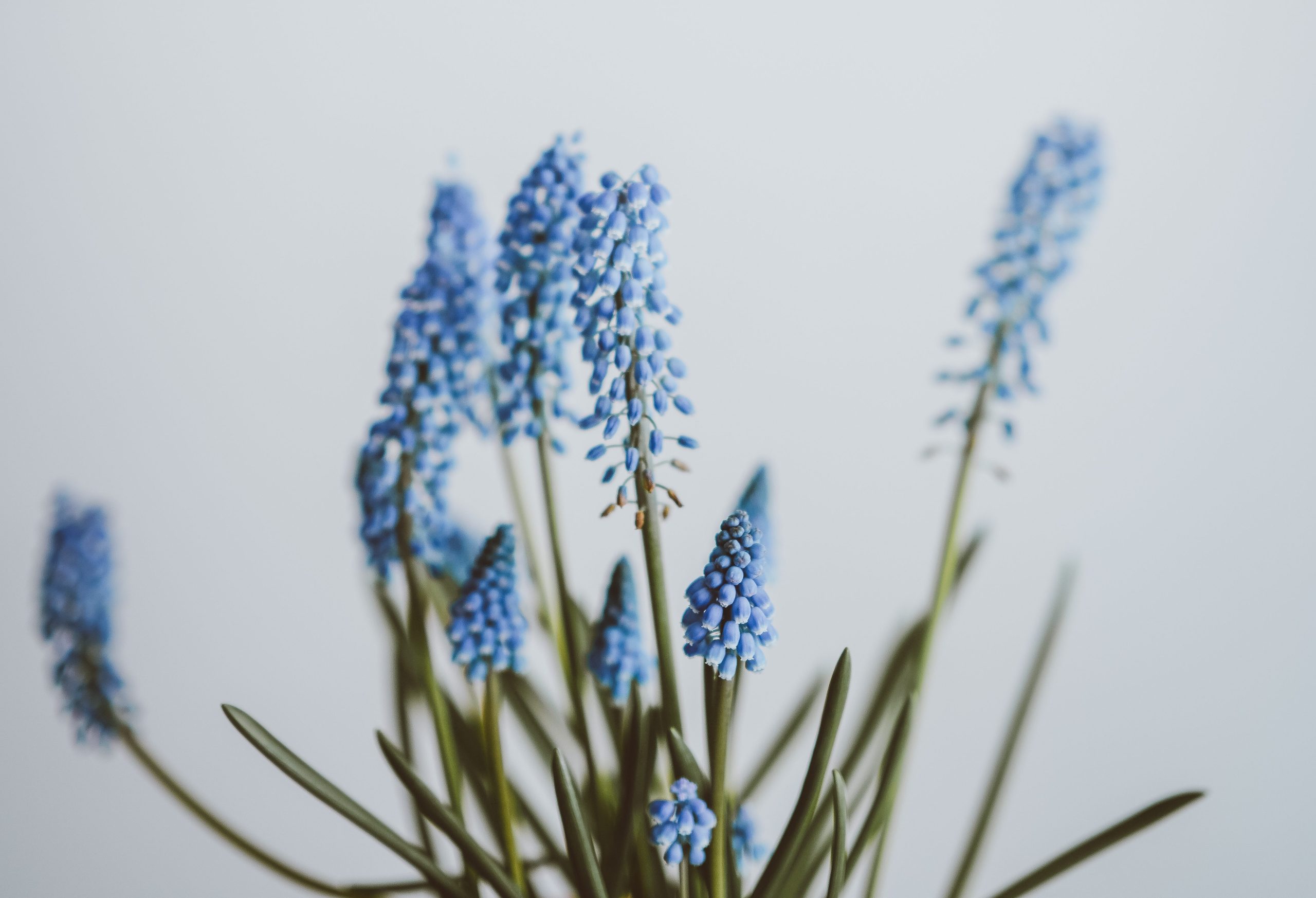There are two ways to have enough: one is to continue to accumulate more and more. The other is to desire less.
G.K. Chesterton
The path to minimalism is fraught with difficulty, traps, and distractions. I still struggle with wanting more, even though I have experienced the benefits of living more simply first-hand. It’s so easy to fall back into old habits; and there’s something about the reduction of possessions that borders a little too closely with perfectionism. I experience this a lot with my capsule wardrobe in particular, because I’m constantly trying to improve it and make it perfect. I find myself wanting something new simply because it’s a better version of what I already have.
I suppose it’s human nature to want more than what we have. And our society takes full advantage of that; in today’s day and age, it’s harder than ever to ignore all of the advertisements that are hurled at us in an effort to maintain consumerism. So how do we keep forging ahead with less, and learn to be content with what we already have? How can we let go of trying to be perfect, and feel okay with just being good enough?
All it requires is a shift in your mindset; but that’s easier said than done. It’s really a battle with our own human psychology and the way our brains work, turning off our instinctual desires and thinking with more intention instead of just feeling. Here are some ways you can practice more intentional thinking and cultivate more contentment in your day-to-day life.
Keep a gratitude journal.
I wrote an article a while ago about why it’s important to practice gratitude as a minimalist, and it still holds true for me today. By keeping track of the things that you are grateful for in your life every day, it changes the focus from what you might feel is missing to all of the things you already have.
For some reason, it’s so easy for us to forget all of the great aspects of our lives and instead focus on what we wish we had. So, we just need to make a conscious effort to remind ourselves of what we do have and to be thankful for it. Research has shown that having a regular gratitude practice has so many benefits for your overall health and well-being, such as greater happiness and better self-esteem (source).
Stop comparing yourself to others.
I believe that one of the biggest sources of discontent in our lives is the feeling that others are better than us. I have a very bad habit of comparing myself to others – it’s an easy habit to fall into, especially these days. That comparison is something that we need to let go of in order to erase those feelings of not being good enough and wanting to keep up appearances. You have to know that you are good enough just the way that you are (which is the truth). If there is something that you want or a change you want to make in your life, make sure that you’re doing it for you and not because it’s what you think other people value or expect from you.
Take a social media break.
Speaking of comparing ourselves to others… Social media can be a great place to find ideas and connect with like-minded people. But, it can also be incredibly toxic for our general well-being. We’re constantly being exposed to the best parts of the lives of other people. And, there’s no shortage of advertising that happens on social media, considering it’s one of the cheapest and most effective forms of marketing that exists. With the combination of these two things, it’s easy to see why social media can make us feel less than enough, and like we need more.
Taking a break from social media is a great way to step away from all of that and re-focus on yourself instead of others. Log out of the sites on your computer, and delete the apps from your phone for a while so that you’re not tempted to check it. It’s good to take some time away from those spaces now and again, and it’ll always be there for you to come back to after a little while.
List your needs & wants.
Jot down a list of everything you want (it may help to limit this to one specific area of your life at a time, such as clothing). Beside each one, mark whether it’s a necessity or just something you want to have. If you have more time, you could also make a list of everything you already have, and compare it with your list of wants. How much of all of that do you actually need to get by? How much of it will actually improve your life if you gain it (not forgetting to consider how much it will cost)? How much of it do you want simply because you’re bored, someone else has it, or another reason?
I’ll give you a personal example. I’m someone who enjoys beauty products, and especially in the last couple years as I’ve gotten older, I’ve invested heavily in skin care. These days, there are constantly brands coming out with new products, or new brands altogether with the latest and greatest thing that you have to have. I love watching YouTube videos of skin care routines and product reviews, trying to find where best to spend my money.
But what ends up happening is I find a new product or treatment that sounds so perfect, and I instantly want it over anything else I already have. Instead of using up products, I started buying more than I could use in a year, so that my skin care shelf was overflowing and older products were sent to a tub beneath the sink to make room for the new ones.
Now if I go ahead and make a list of the skin care that I need on a day-to-day basis, it’s actually very short. I at most absolutely need a cleanser and a moisturizer – that’s all. But my cupboard was full of serums, oils, exfoliators, toners, creams – everything that companies make you think that you need in order to be beautiful and match society’s expectations.
In comparing my list of necessities to things I just wanted (often for the wrong reasons), it was much easier to step back, take a deep breath, and curb my skin care addiction. My focus now is working through all of the products I already have, and only buying something new when I finish it. I’ll still likely branch out and buy a range of products, even though I don’t need it – but now I’m aware of what I absolutely need, it also makes me aware of what I absolutely don’t need. I feel much better about what I already have, and stopped thinking so much about what I felt I was missing out on.
Practice Stoicism.
Stoicisim is a way of thought dating back to 3rd century Greece, and practiced by many prominent figures such as Marcus Aurelius, who was an Emperor of Rome. Its core belief is that we can’t control what happens to us, but we can control how we perceive and respond to these events. It teaches you how to move from relying on your impulses to viewing things more logically, with the goal of overcoming destructive emotions and replacing it with positive action (source).
Thinking like a Stoic is a way to remind ourselves of how small the world is, how short life is, and how truly insignificant things and possessions are in the grand scheme of things. Instead of focusing on impulsive desires to keep accumulating more success, wealth, and ‘stuff’, a Stoic would think rationally about how much she already has and how little she really needs to get by.
In other words, instead of changing how much we have, we simply need to change our own judgement about how much we have – so instead of thinking we don’t have enough, we change our perception to the feeling that we do. It’s a very similar way of thinking to the Abundance Mindset, which you can read more about here if you’re interested.
Re-align and focus your priorities.
If you’ve tried a couple or all of the above, and you still can’t seem to feel content or happy, it might suggest something deeper. Take a step back and check in with yourself. It may be time to re-align your day-to-day life with your priorities, or re-focus your priorities altogether. Minimalism is an excellent way to clear away all of the physical, emotional, and mental clutter that gets in the way in order to help you focus on what you truly want in life.
I hope you found this article interesting and informative! How do you cultivate contentment in your day-to-day life? Let me know in the comments below. Thanks for reading!
Until next time,

Pin for later

Featured photo by Annie Spratt on Unsplash


Thank you for sharing this information, I wanted to start a minimalistic wardrobe a while ago but I’ve never found a real inspiration or tips to do it until now, i shopped a lot since I remember, and recently it doesn’t feels fun or good anymore.. I recently realized that I do it to find “something” and maybe it’s time to heal that part. I’ll keep seeing your posts, thank you for sharing !
That was totally the same for me. I was doing retail therapy to feel better about other things that were going on in my life – but all the spending and clutter was making it worse, not better! Best of luck with your minimalism & simplification journey 🙂
Thank you, very inspiring. I’m beginning my journey on these themes. And its very helpfull to see that other people no matter where in the world are struggling with the some problems and sharing their own ways to confront and solving them. Social media can be so helpfull but so harmfull on the same way. I want to start to use the good way and stopping comparison on the other hand. Thank you for all your input and continue to do so.
Be sure, I will be reading your posts.
Thank you so much! I’m so glad you enjoyed the article. Totally agree about social media – it’s so great in some ways but I find I need to take a break every now and then. There are so many great ideas but it’s hard to turn off the comparison side of things, so I’ll just leave for a few days every once in a while! Thanks for your comment, and best of luck on your path 🙂
I’ve been trying to simplify my life for nearly 2 years. It hasn’t been working. I’ve been accumulating more and more and I haven’t really felt better. I’m so appreciative of this blog and of you for sharing your experience and advice. Thanks!
Thank you very much. I’m so glad you found it helpful 🙂